The community kitchen of the ‘Food for good living’ project, led by Olinda Tupinambá of the Okara Kaapora organizattion, is finished! The initiative has engaged agroecology students from the Village State School, as well as the other members of the community, strengthening the village partnership, promoting sustainable way of living and encouraging the young indigenous people to take care of their territory.
Authors: Ana Paula Cipriano e Sílvia Lomba
Leia em português
The projects of the Pollinating Regeneration Program are built by many hands, and the community’s participation is essential for the development of the activities. We are very pleased to announce that the community kitchen is ready and now is in the final stages of adjustments before the opening of the project. The ‘Food for good living’ had the support of some members of the community, in particular, the students of the first agroecology class at the State School of the Indigenous Village Caramuru Catarina Paraguaçu.
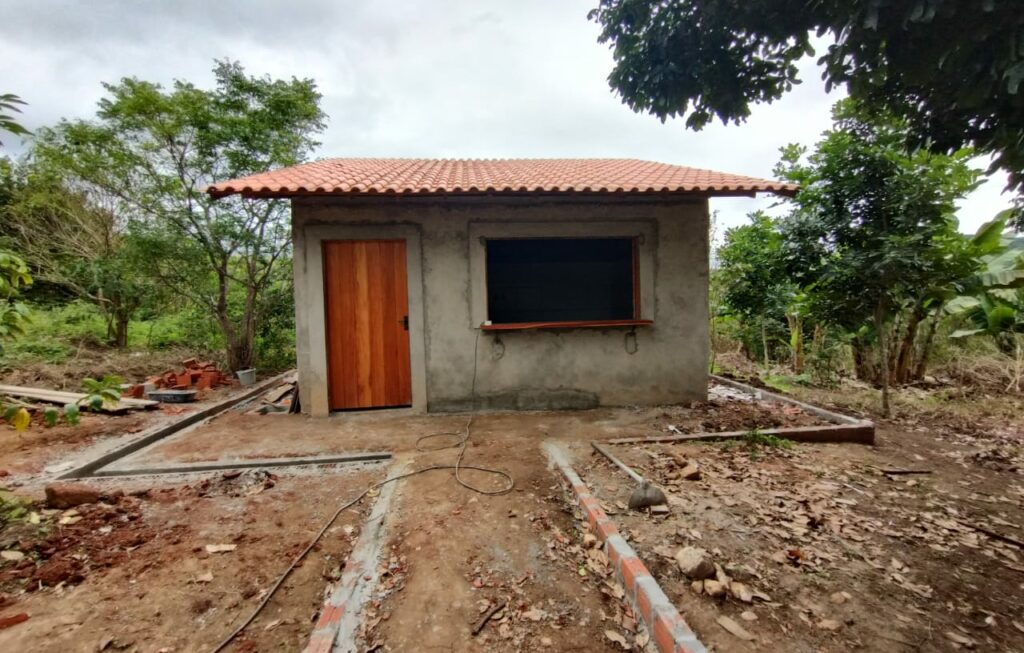
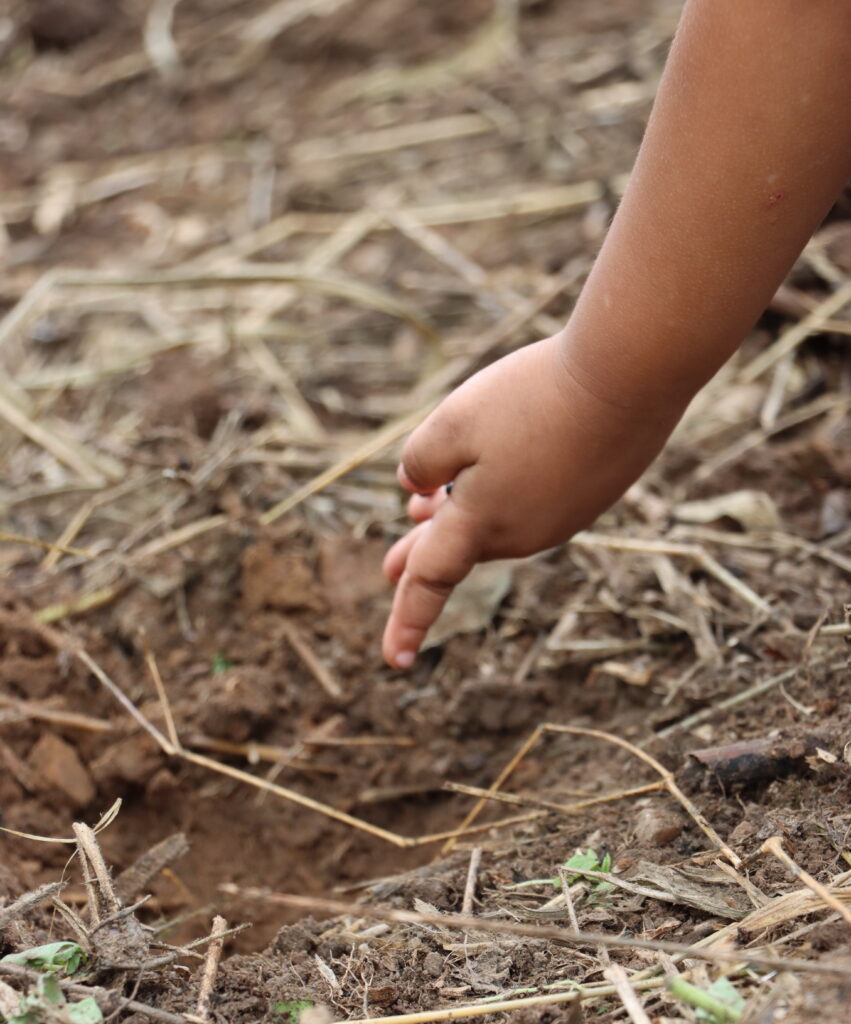
Since the beginning of the project, joint effort activities were organized with the community. Firstly, an activity for adapting the external area was organized, building paths and marking the areas where the sidewalks to access the kitchen will be. Also, they cleaned and prepared the field for some crops to be planted, like beans, which will be harvested for the inauguration of the ‘Food for good living’ project.
Aside from adults and children from the community, the joint efforts also counted on high school students who attend the Okara Kaapora to carry out practical activities in the agroforest that are under development within the area. The class was interested in helping in the necessary activities for the improvement of the external area of the community kitchen. Therefore, the students did the maintenance of the vegetation and the organization of the spaces that will be integrated to the construction, creating an area with delimitated gardens, access ramps and vegetation with fructiferous trees in the surroundings. Also, the students agreed to help with the recovery of the road to access the Kaapora project, an initiative that will facilitate every activity in the area.
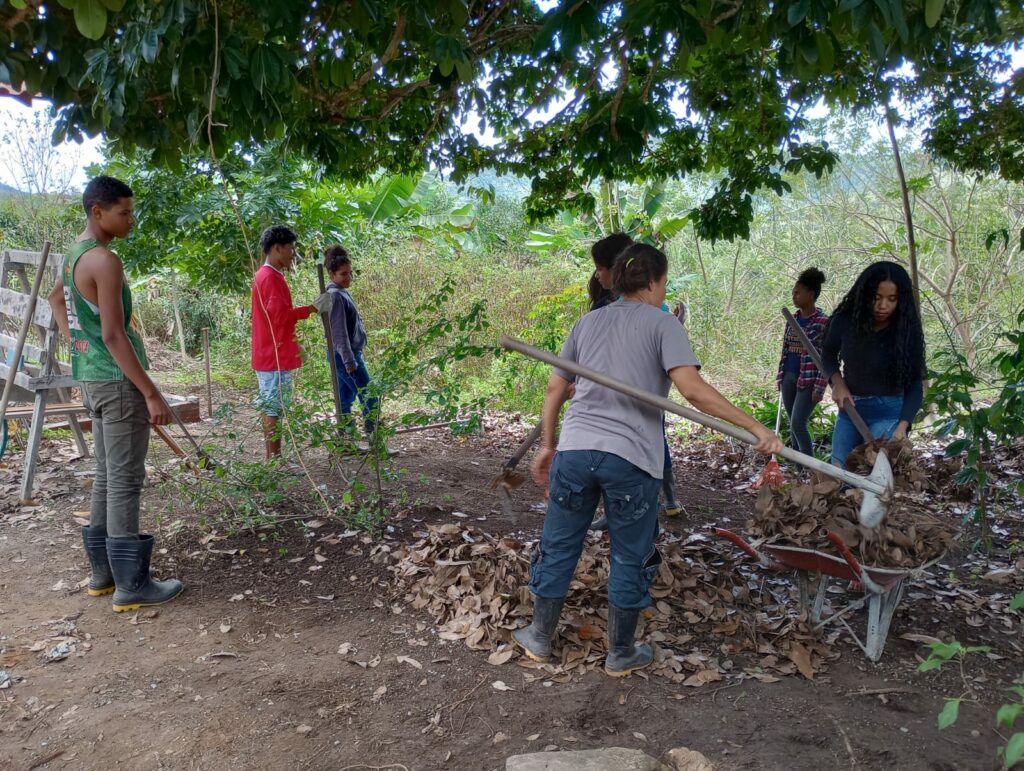
The leaders of the ‘Food for good living’ project, Olinda and Samuel, report the importance of engaging the community, especially the young people of the indigenous territory, who are the future of the Pataxó Hã-hã-hãe community. There is concern about the evasion of indigenous people from their territories and a lack of regenerative practices in the villages, especially in areas that have already been heavily deforested, such as the Caramuru Paraguaçu Indigenous Territory. Through education, the students’ view of nature and their relationship with the land can become very positive, generating important results for environmental and cultural conservation.
With this finished project, it will be possible to make more events with changemaking potential in the indigenous territory, reaching a larger audience. It is important to highlight that Olinda and Samuels’ commitment during the whole project was essential for obtaining such an impressive result and finishing the project before expected. Soon, we will disclose the activities for the inauguration of the community kitchen. This is the first completed project of the Pollinating Regeneration Program, and we are glad to be able to positively impact the Caramuru Paraguaçu Indigenous Territory.
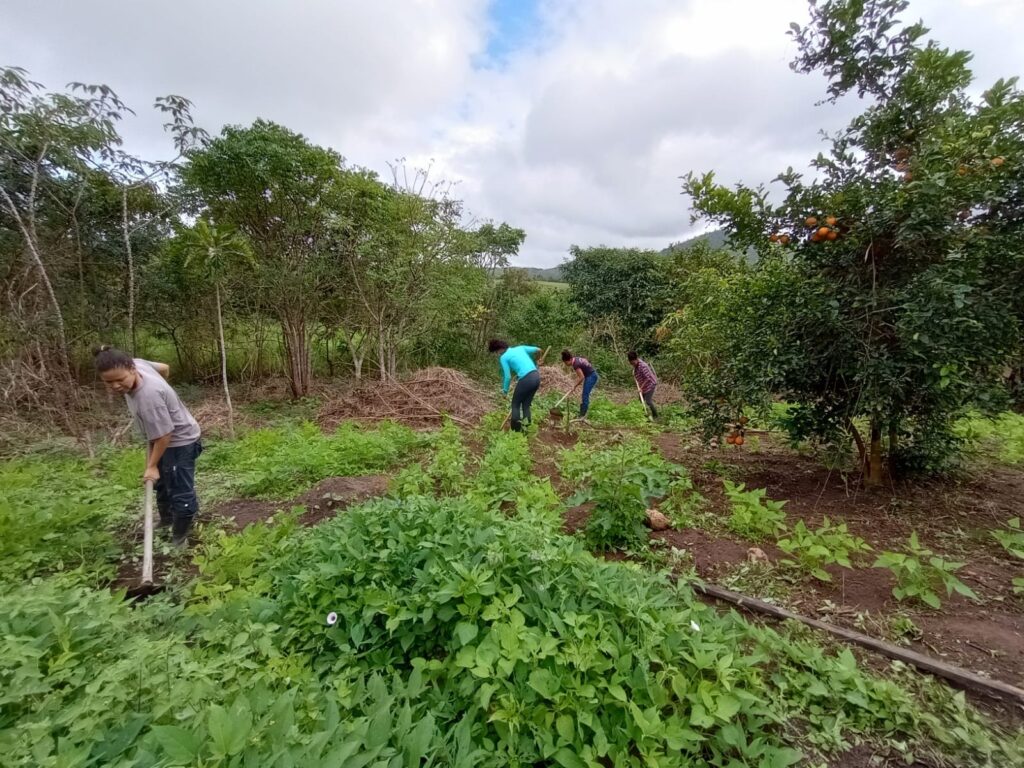
Your donation can impact the world positively!
Subscribe to receive our Newsletter!
Find us also at Linkedin, Facebook, Twitter or Instagram
www.meli-bees.org
❤️

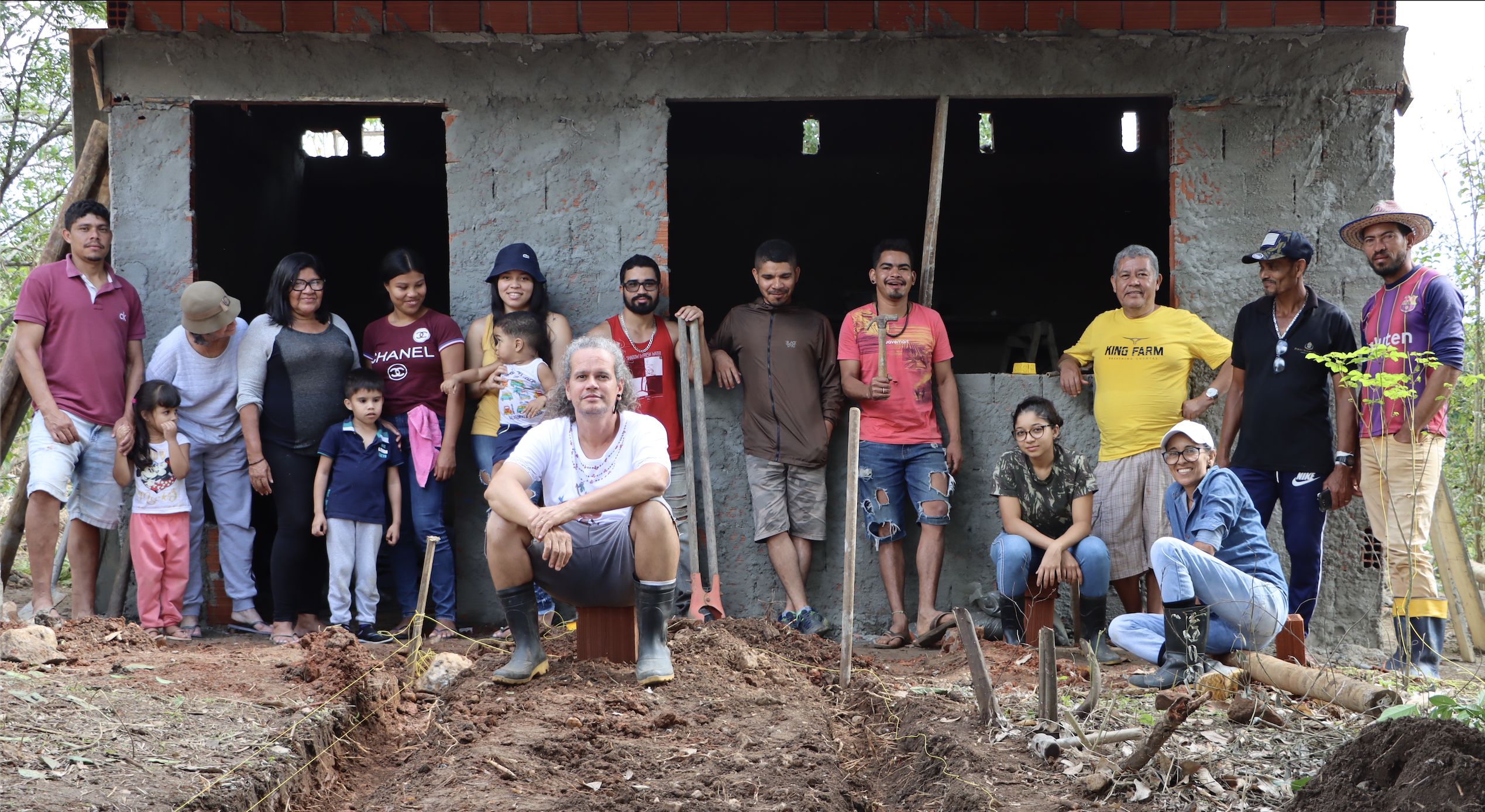
One Reply to “Weaving Sustainable Communities: Completion of the ‘Food for Good Living’ project ”